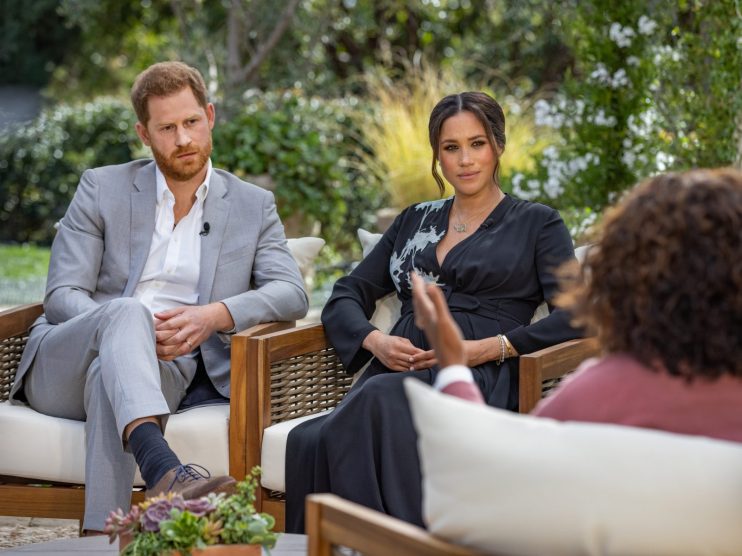ITV warns on ‘challenging’ ad market as pandemic hits profit

ITV today warned that the advertising market remained “challenging” as it reported sharp falls in revenue and profit due to the impact of the pandemic.
The London-listed firm, which last night aired Oprah Winfrey’s eagerly-awaited interview with Prince Harry and Meghan Markle, posted a 16 per cent drop in total revenue to £2.8bn in 2020.
Total advertising revenue dropped 11 per cent while ITV Studios, its production arm, saw revenue fall by a quarter.
Earnings before interest, tax, depreciation and amortisation came in at £573m — a 21 per cent fall year on year but ahead of analyst forecasts.
The broadcaster credited this to a stronger final three months of the year, but warned advertising in the first quarter remained “challenging”. Shares fell almost two per cent in early trading.
ITV, which slashed its interim payout in August due to the advertising slump, said it would restore the dividend “as soon as circumstances permit”.
Chief financial officer Chris Kennedy said that more certainty over lockdown restrictions and less volatility in the ad market was needed before the payout could be reinstated.
Chief executive Carolyn McCall said the company was “encouraged” by the government’s roadmap to end lockdown.
“We are seeing more positive trends in the advertising market in March and April and the majority of our programmes are now back in production,” she said.
“However, there remains uncertainty in all markets around the world with the potential risk of lockdowns, which if they materialise will affect revenues.”
Double impact
The results come after a torrid year for the public service broadcaster, which suffered the double impact of shrinking ad spend and a shutdown in production during the pandemic.
The company started to resume productions in the summer with strict safety measures in place and now has roughly 90 per cent of programmes back in production.
However, it warned of continued disruption and delay, as well as additional costs, due to the virus.
ITV said its key focus this year was to sell more of its formats abroad, grow its scripted business and double the revenue it makes from commissioning shows for streaming platforms such as Netflix and Amazon Prime.
Previous streaming hits for the company include Snowpiercer, which has been recommissioned by TNT and Netflix for a third season.
The move marks ITV’s efforts to reduce its reliance on traditional broadcasting revenue amid declining ad revenue and shifting viewer habits.
The channel said it expected ad revenue to drop six per cent in the first quarter, but forecast a sharp increase of up to 75 per cent in April.
Richard Hunter, head of markets at Interactive Investor, said ITV was “unable to ride the wave of opportunity which enforced lockdowns provided to some broadcasters, due largely to the nature of its business model”.
But he said there were “certainly chinks of light at the end of the tunnel” for production as lockdown eased, adding that the company had worked hard to increase cost savings and pay down debt.
Total ITV viewing rose one per cent for the year. However, the lack of reality TV hit Love Island, as well as fewer soaps and no major sporting events, meant online viewing dropped five per cent.
ITV said it would increase its programme budget to £1.1bn in 2021 and was aiming to reach mass audiences through shows such as The Pembrokeshire Murders, Finding Alice and The Masked Singer.
Streaming strategy
ITV reported strong progress for Britbox, its joint streaming service with the BBC, which it said was ahead of targets to hit half a million UK subscribers by January.
The company said registered users on its ITV Hub catch-up service had increased six per cent to 33m.
The broadcaster last year created a new business division focused on streaming as it looks to shift its focus on on-demand services.
ITV will also reduce its office space in the capital over the coming years in a bid to cut costs and respond to an increase in home working.
The company today said it had “unusually low” net debt of £545m and a strong £1.5bn cash position.
It now plans to deliver around £100m of permanent annual savings by 2022, ahead of its previous forecast of £55m to £60m.